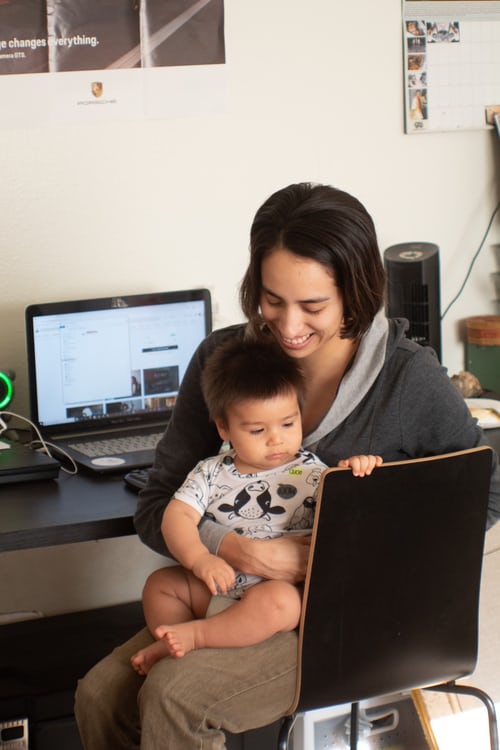6 tips for employers on how to re-motivate, re-energising and re-train staff as we return to work
6 tips for employers on how to re-motivate, re-energising and re-train staff as we return to work
With restrictions lifting in the last week of May, many businesses are reopening their doors for the first time in almost six months. It’s been greatly anticipated by customers and business owners alike. However, employees may not feel the same.
It’s only natural: staff are returning to work after a 6-month hiatus. Within that time many will have established new routines and adjusted to having a lot more time at home. So, some staff may feel a little deflated and unmotivated. Others may resent having to return to work, even in the most positive of working environments. While this is understandable, it’s not efficient for business.
Until we fully adapt to the ‘new normal’, business owners are responsible for guiding their staff through this exciting, rapidly evolving period. Here are 6 tips for employers to build confidence in staff as we begin to open our doors again:
- Safety first
Clarifying and implementing COVID procedures is a crucial first step. Government guidelines change almost weekly in Northern Ireland, so staying up to date with advice is vital. Doing so ensures that you are providing the safest and most comfortable environment for your employees, and your clients. Update employees about internal changes within your company which impacts how they should operate.
- Support and adjust early
Over the course of the pandemic many employees may have faced incredibly challenging personal circumstances. Their health and wellbeing, and that of their friends and family, may have been impacted. Extreme changes in circumstances can be reported to the human resources department if necessary.
It is important to offer support, and provide an invitation for employees to bring their concerns forward so that necessary adjustments can be made.
Now is also the perfect opportunity to revise existing set rotas, team structures and employee development plans.
Businesses are facing an ‘evolution’ stage. Areas for improvement and issues experienced prior to the pandemic should be highlighted and resolved alongside the new COVID alterations, while people are already adapting.
- Hit the ground jogging?
The lockdowns have severely adjusted the pace of our lives; this is especially true for people who have received furlough and have had a full break from work.
Accept that employees may initially struggle to readapt to the speed and energy required to work. If staff are in agreement and it’s possible financially, offer reduced hours or staggered working days. Working shorter, more frequent shifts opposed to longer days should prevent overwhelming staff until they are ready to return to work at full capacity. Flexi-furlough may be able assist this.
Where this isn’t feasible, collaborate with staff to figure out which tasks need to be prioritised. Express expectations, and implement a plan to determine the best way to move forward with maximum efficiency.
If staff are unwilling to return to work, contact HR about how to proceed. There is no blanket approach on how to treat individual staff members following a pandemic. However, if an employee is unnecessarily underperforming or unreasonably refusing to return to work, disciplinary actions may have to be considered.
- Refresh and retrain
Relying on muscle-memory may not be the best strategy to adopt towards people who haven’t been operating in their roles since December.
Providing a mini-induction training to cover the basics and daily operations will provide comfort, and allow staff to readjust to their roles. A refresher course will also instil confidence in staff who may be intimidated at the thought of returning to a job they haven’t worked at for half a year.
For those in the hospitality sector, offering a trial day, for example a friends and family only day, should alleviate pressure from employees and help sooth anxiety among those who feel overwhelmed.
- Reconnect through a team building activity
Many people experienced long periods of isolation over the duration of the pandemic. Another thing to consider is that many staff members may not have seen or spoken to each other in almost half a year.
Team building exercises not only reduce potential awkwardness between co-workers, but are proven to increase long term productivity and communication, and reduce the occurrence of health and safety incidents.[1]
Ice-breaking activities encourage collaboration and solidarity among co-workers. They bring people out of their shells, and closer together as a team. As Margaret Carty said, “The nicest thing about teamwork is that you always have others on your side.”
- Lead staff with compassion and clarity
Gather staff together for a meeting to acknowledge that you appreciate that things have been anything but normal for the past year, and that you understand discomfort – you are only human too, of course. Reminding employees that they are valued and an integral aspect of the business is also important.
Despite the challenges, it is time to move forward. Employees must be onboard and prepare to begin progressing enthusiastically, and as a team. Reinforce that they are still expected to work to a high standard upon reopening, even if that standard has changed.
If you require further support with the Coronavirus please feel free to contact Julie Pollock on 07858089006 or e-mail julie@consulthr.co.uk. Visit our website here: www.consulthr.co.uk
Tags: Coronavirus, Coronavirus HR, Covid-19, HR, COVID, return to work, adjusting to covid, motivating staff, human resources









